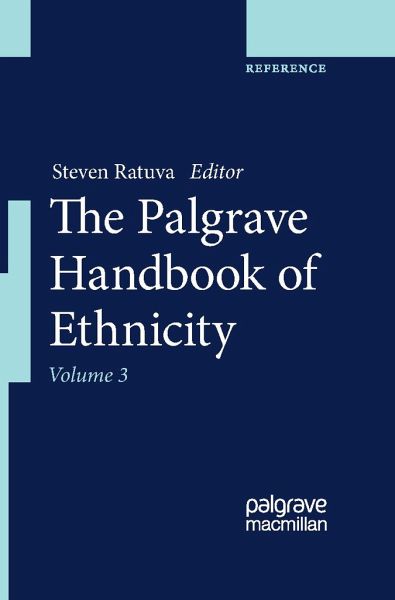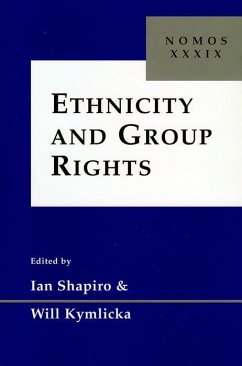
The Palgrave Handbook of Ethnicity ¬With eBook
Versandkostenfrei!
Nicht lieferbar
This handbook provides a comprehensive and cutting-edge analysis of ethnicity through diverse multidisciplinary lenses. It explores numerous aspects of ethnicity and how it is linked to a range of contemporary political, economic and social issues at the global, regional as well as local levels. In a world where globalization has enveloped and transformed societies through economic and financial integration, social media networks, knowledge transfer, transnational travel, technology and education, there is a tendency to frame issues largely from the standpoint of economic, political and strate...
This handbook provides a comprehensive and cutting-edge analysis of ethnicity through diverse multidisciplinary lenses. It explores numerous aspects of ethnicity and how it is linked to a range of contemporary political, economic and social issues at the global, regional as well as local levels. In a world where globalization has enveloped and transformed societies through economic and financial integration, social media networks, knowledge transfer, transnational travel, technology and education, there is a tendency to frame issues largely from the standpoint of economic, political and strategic interests of the dominant powers. Issues such as ethnic and cultural identity are often ignored partly because they are too complex to deal with. In this regard, the study of ethnicity is critical in delving deeper into people's worldviews, perceptions of each other, relationships and sense of identification to help us uncover some of the deeper perceptions and meanings of social change as seen and shared by cultural groups as they adapt to the fast-changing world. To better inform ourselves of the complexities of ethnicity and relationship to contemporary global developments and challenges, an approach which is people-centered, balanced, comprehensive and research-based is needed. The multidisciplinary approach of this handbook provides conceptual and empirical narratives across different disciplines such as anthropology, sociology, political studies, cultural studies, media studies, literature, law, development studies and economics, to name a few. It includes comparative case studies from different parts of the world to enrich our understanding of the diverse experiences. The chapters focus on contemporary issues and situations while drawing from historical reflections and lessons. The idea is not only to illuminate the intricacies of ethnic identity, but also to provide innovative ideas to help understand and address some of the contemporary challenges associated with these in our world today.










